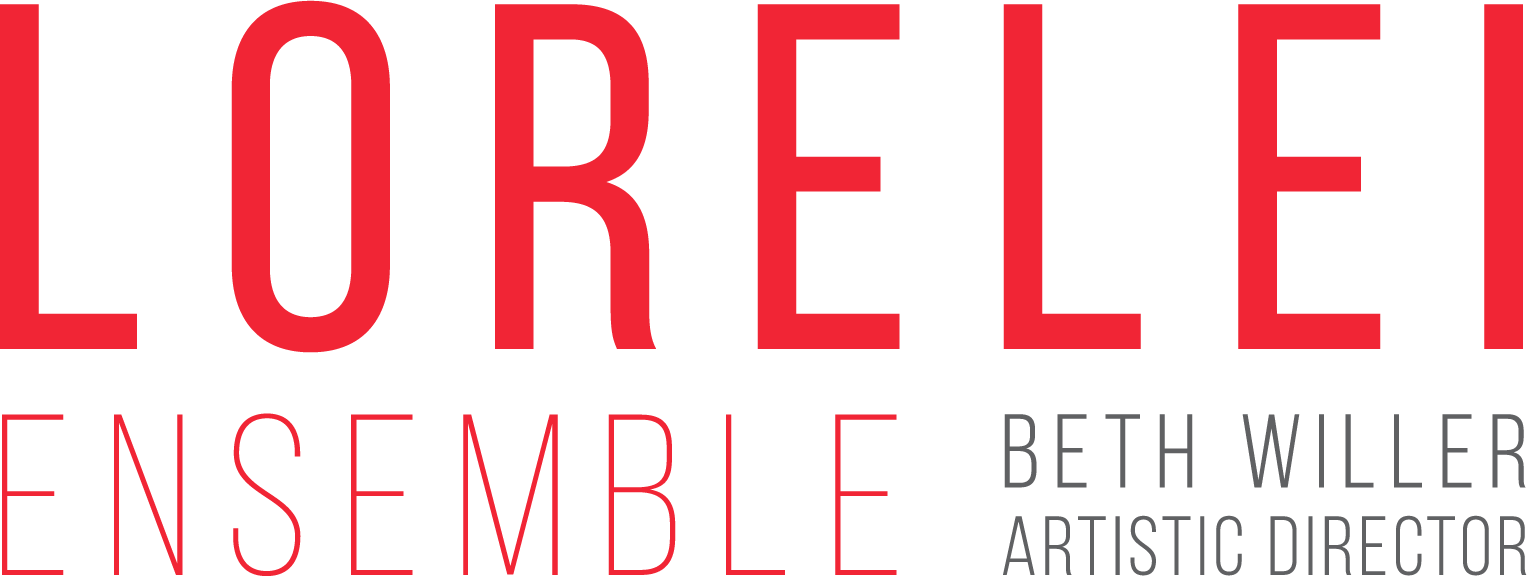Elizabeth Eschen
I’ve always lived in that space between choral music and vocal performance/pedagogy, equally buoyed by my enthusiasm for making sounds in a group and my fascination with how great singers do what they do. My earliest influence was singing with the Syracuse Children’s Chorus under Dr. Barbara Marble Tagg; I would then go home and listen to Mariah Carey, Toni Braxton, and the Phantom of the Opera original cast album and try to sing along with all three. (I was not successful; those are all very different voices!!) While I earned my Masters degree in Conducting under Ann Howard Jones at BU, at one point I was in seven choirs and an opera, saying yes to any conductor and composer friends who needed a ringer or a willing reader. This was in the early years of Juventas! New Music Ensemble and Lorelei Ensemble, and performing with them certainly expanded my perspective as a vocalist and budding vocal pedagogue. When building my own high school choral program after finishing my degree, my first act was scheduling weekly individual lesson time during the school day for every choral student at Fredericksburg Academy, knowing their choral progress and ability to fully contribute would be aided by their personal vocal growth.
My fascination became more concrete through the conflict and the trauma of my personal struggle with vocal pathology through most of my 20s. I did not have access to the resources and mentors that could have prevented it becoming surgery-worthy, finally reaching a breaking point while singing professionally in New York City in 2014. My nodules had progressed to the point of structural change at the midpoint of the vocal fold, although I didn’t know that at the time. All I knew was that I could not keep needing medicine to help my poor vocal folds to close completely, nor sustain the emotional toil of wondering each morning whether or not I could phonate that day.
A fellow singer directed me to Dr. James Burns and Carol Krusemark at the MGH Voice Center in Boston, as well as a fantastic team of voice teachers specializing in voice function. I was among compassionate experts whose knowledge made me feel comforted and inspired. The rebuilding of my voice and subsequent launch into my current professional world took almost a year; the way that year revolutionized my teaching and cemented my purpose in voice work was the true miracle. I directed my passion for voice into becoming the teacher I would have wanted; not only enthusiastic and encouraging, but with the discerning ear of a diagnostician and a deep toolbox that could be tailored to any individual as well as shared with ensembles.
One surgery, a half-dozen programs, and hundreds of students later, I believe my role as a teacher of young artists is of three parts: to bring all of the things I’ve learned about healthy, sustainable, hybrid voice function into the studio and choral rehearsal; to connect students to the people and resources that can help them develop as lifelong singers; and to build institutional programs that make all of this possible. This has been my mission as the Director of the Holden Voice Program at Harvard University for the past 6 years, working hand-in-hand with the Director of Choral Activities Andy Clark. His visionary leadership, knowledge of and deep respect for voice science, and commitment to fostering empowered, collaborative relationships with our students has provided the model for how voice training and choral singing can support and complement each other.
During this pandemic, two things emerged - how deeply we need singing, and that we are no longer limited by geographic location. We are in a completely different world today for voice education than the one I experienced only a decade or so ago. Thanks to the incredible colleagues who have embraced the opportunities technology presents, we have low-latency Zoom lessons and Masterclasses, websites and Youtube videos explaining voice function in detail, podcasts with interviews of voice specialists, and workshops in teaching hybrid technique, just to list a few. With teaching over Zoom, I’ve been able to bring voice function workshops to choirs and singers all over the country, hopefully enabling them to use this time to learn more about their instrument and improve their skills for when we are back in person. I’ve also been in attendance at colleague workshops, as it is critical to my work that I keep learning and growing my own toolbox. It’s a fantastic time to be a lifelong student of singing, and I’m going to continue to help as many people sing healthily, freely, and joyfully as I can.
Mezzo-soprano Elizabeth Eschen makes her home in Boston, where her work lives at the intersection of choral music and vocal pedagogy. A lifelong choral singer, her credits range from Lorelei Ensemble founding member to Mozart Requiem soloist to the Studio Cast Album of Alan Menken’s The Hunchback of Notre Dame, with special love for Bach and oratorio. She currently enjoys singing with Handel & Haydn Society, Emmanuel Music, Boston Baroque, Bach Akademie Charlotte, and Oregon Bach Festival, with recent solo engagements including Emmanuel Music, Harvard-Radcliffe Collegium Musicum, Harvard-Radcliffe Chorus, Rhode Island Civic Chorale, Back Bay Chorale, and Music at Marsh Chapel.
She is the Director of the Holden Voice Program and Teaching Fellow at Harvard University, where she integrates vocal function into the curriculum of the Harvard Choruses. She is honored to serve as the Vice-President of the Boston Chapter of the National Association of Teachers of Singing, and believes strongly in working for access and equity in the singing field. She is a member of Beyond Artists. www.BeyondArtists.org, www.elizabetheschen.com

